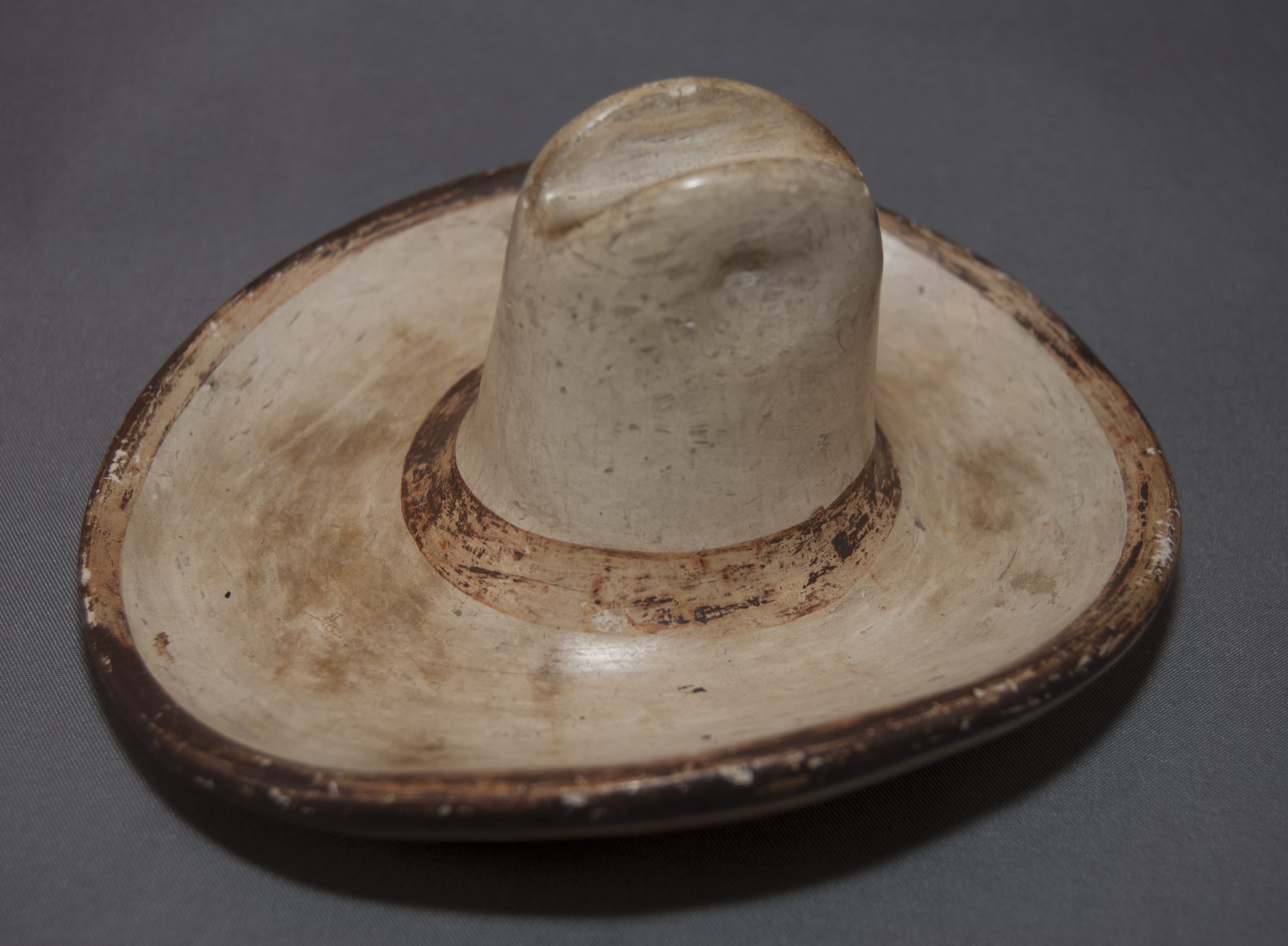
Kitsch
This is the definitive tourist pot. Ashtrays for sale to tourists were a mainstay of the low-end Hopi pottery market from the turn of the century to at least the 1950s, but the cowboy hat motif makes this form the height of kitsch. Katharine Bartlett,...
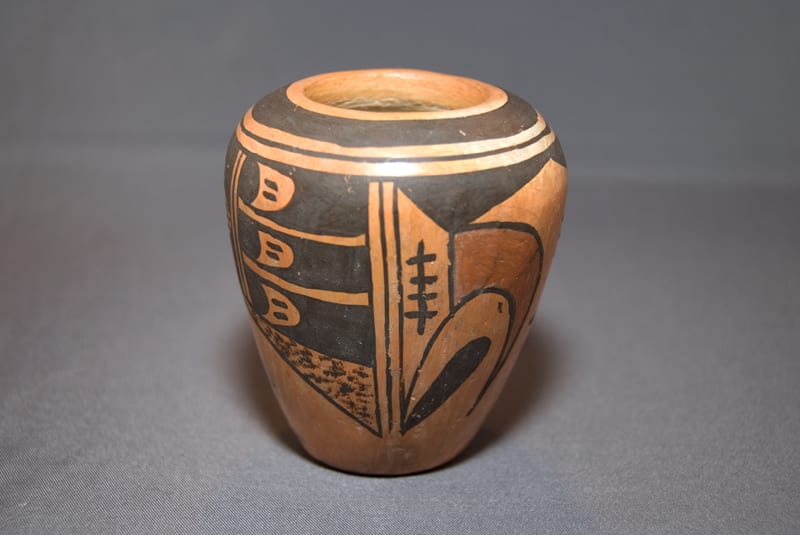
Uncategorized
Made ca. 1930-1942, this small jar has a large visual impact. The polychromatic design is carefully composed and fits the jar well. Nampeyo smoothed out the clay coils with her fingers and these striations can be seen and felt on the interior of the jar. Although...
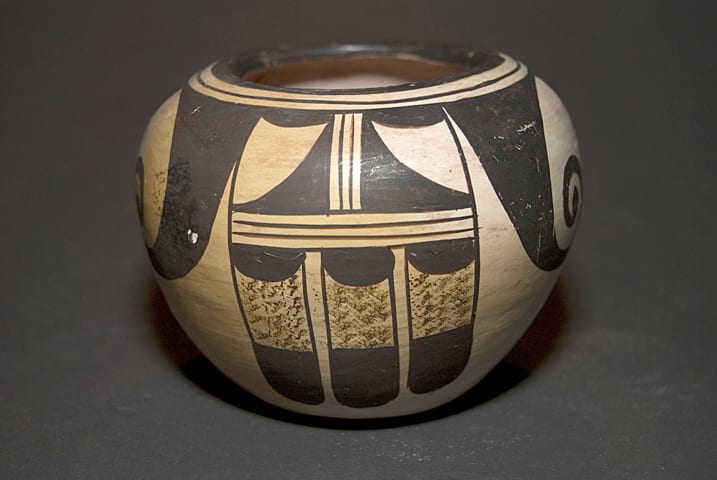
Eagle Tail Design
This jar is signed “Nampeyo/Fannie” and marked “1942” in pen. Apparently, Nampeyo formed it and her daughter Fannie painted it. Nampeyo probably began potting when she was a teenager in the 1870s; her Sikyatki Revival style dates from the early 1880s. Her eldest...
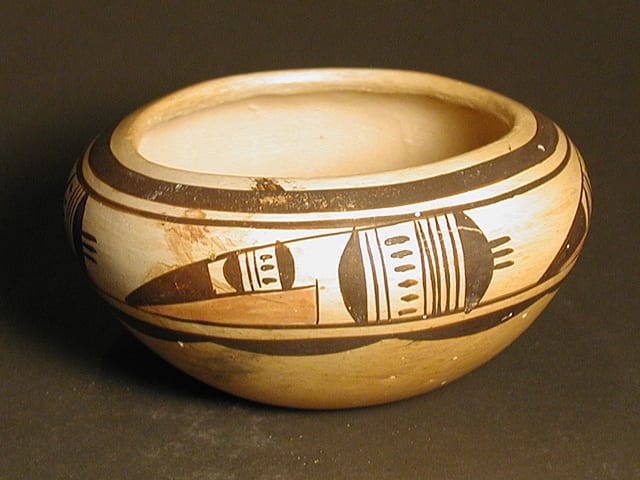
Uncategorized
This pot has four repeating designs, thicker framing bands on the outside of the design, and thinner framing bands that touch the design. The lowest framing band has been given the form of eight drapes. The pot is signed “Nampeyo N.” Presumably, the pot was formed by...
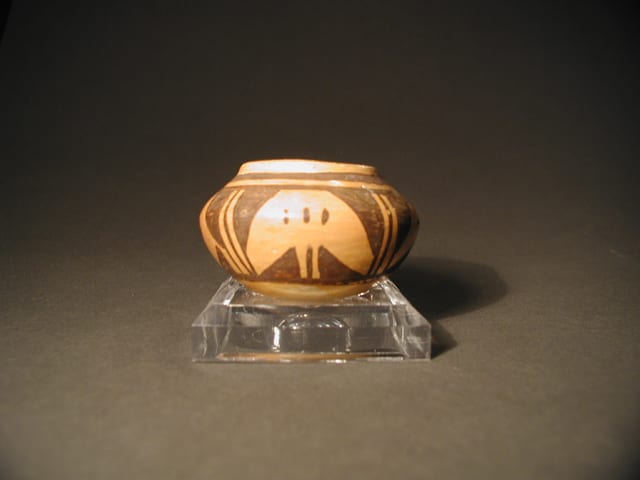
Uncategorized
Very small Hopi-Tewa pot with a simple monochromatic design, signed “Nampeyo.” Like 1985-01 and 1997-01, this pot was made by the “Old Lady,” painted and signed by a female relative and probably sold through the Museum of Northern Arizona Hopi Craftsman Exhibition,...







